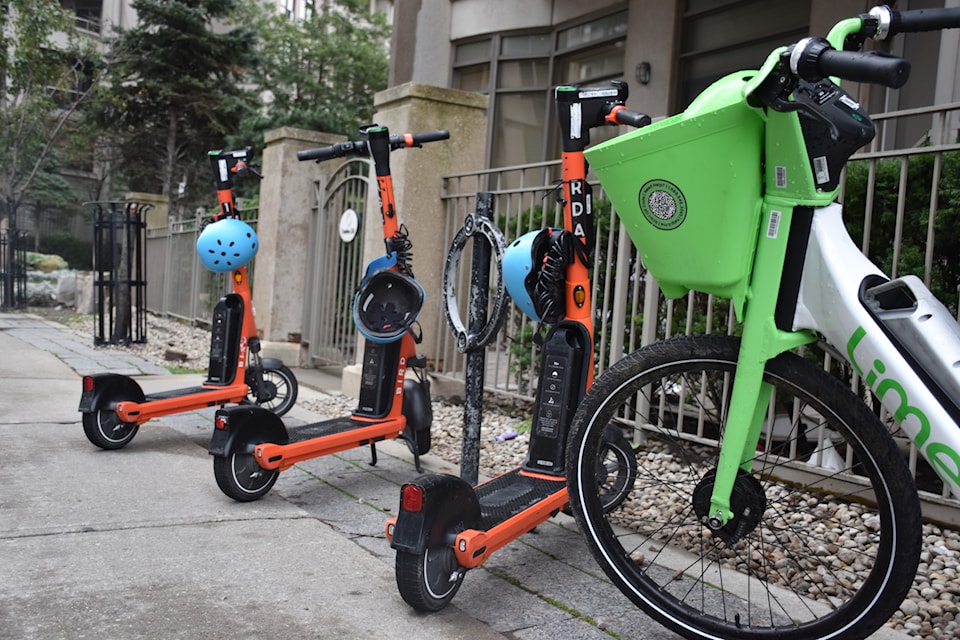Naja Newton, a first-year journalism student at Humber Polytechnic, has a two-hour commute to school every day between Oakville and north Etobicoke.
She needs to take two buses and a GO train to reach North campus. The journey is repeated in reverse after school. And then she walks the remainder of the way home after stepping off the bus.
"I would ride (a scooter) over walking," she said.
Her daily routine is familiar to many commuters. Peel Region and other GTA cities have created pilot programs for e-scooters to help with the first and last stretches of commuting.
The introduction of the Ontario government's pilot programs in January 2020 prompted many regions to add this as an option for commuters, however, Toronto decided to opt-out.
Ontario set a maximum speed of 24 km/h, with riders required to be over 16 years old and wear a helmet, which municipalities are to enforce.
The legalization of e-scooters in Toronto has been very unsteady with the regulations constantly changing. Currently, they are fully illegal in Toronto.
However, police are finding the ban difficult to enforce this because of a lack of time, said Constable Timur Nurjanov, with Toronto Police Traffic Services.
The pilot programs ensure the city can safely regulate e-scooters for riders and other pedestrians.
Markham is the most recent city in the GTA to adopt a pilot program. They launched in early September, partnering with Ontario scooter company, Scooty.
Scooty has worked with other cities such as Barrie and Brampton to create pilot programs specific to the cities needs.
E-scooters are an addition to a person’s commute, typically used for shorter distances to work alongside transit, Shoaib Ahmed, CEO and founder of Scooty, said.
Scooty’s products are commercial grade vehicles, they have GPS units and are regulated by speed. The scooters also must meet regulations and licensing requirements in accordance with the government to be used.
The company works to connect people from their first and last mile to their destination when getting off transit, Ahmed said.
“We started this as immigrants to Canada, public transit is a lifeline to us,” he told Humber Et Cetera. “As you're taking the train or the bus on almost a daily basis ... the question always was how do we improve this process?”
E-scooters are promoted to work in tandem with a person's commute, helping them get to transit and their destination.
The government does a fantastic job on a federal and provincial level in expanding transit, but the question always is how does a person get to transit, and that’s where the company comes in, he said.
“Toronto needs multimodal transportation options,” Ahmed said. “This would be a great
Many have the same argument that Toronto would benefit from a pilot program.
Dianne Saxe, Ward 11 (University-Rosedale) councillor, wrote a letter to the city in June 2023 recommending a pilot program to roll out this past summer but it was denied due to concern for people with disabilities.
Now there are more cars on the road, and fewer scooters, Saxe said.



